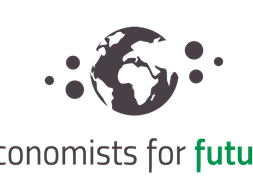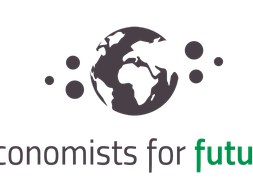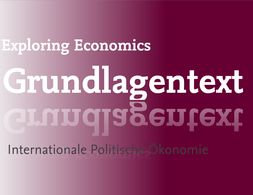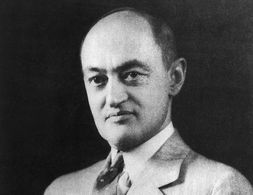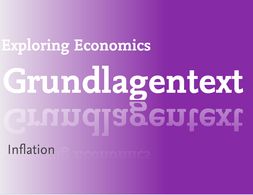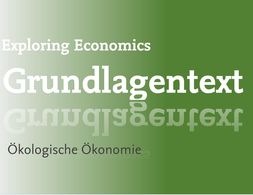305 Ergebnisse
How can we establish new institutions and practices in order to use fare-free public transport as a beacon for sustainable mobility and a low-carbon lifestyle? The author of this essay elaborates on how practice theory and institutional economics can help to answer this question.
Fragen über den Zweck, die Struktur und den Inhalt des wirtschaftswissenschaftlichen Curriculums sie sind so alt wie die Disziplin selbst. Ein prominentes deutsches Beispiel ist der vor mehr als 100 Jahren ausgefochtene Werturteilsfreiheitsstreit. Das öffentliche kritische Interesse an den Wirtschaftswissenschaften korreliert mit den Krisen des Systems. Aus dieser Warte gesehen ist es nicht verwunderlich, dass sich nach der großen Finanzkrise in den Nuller Jahren dieses Jahrhunderts vermehrt kritische Stimmen zu Wort melden.
Was lässt sich basierend auf bereits existierenden Studien über den Status Quo der volkswirtschaftlichen Lehre aussagen?
Wie einseitig ist die Wirtschaftswissenschaft? Studienreihe der Universität Siegen.
As opposed to the conventional over-simplified assumption of self-interested individuals, strong evidence points towards the presence of heterogeneous other-regarding preferences in agents. Incorporating social preferences – specifically, trust and reciprocity - and recognizing the non-constancy of these preferences across individuals can help models better represent the reality.
Hannes Vetter hat sich in Rahmen der Schreibwerkstatt "Varieties of Mainstream Economics?" mit der Evaluation der Bewertung von Umwelt in neoklassischen Makromodellen auseinandergesetzt.
An essay of the writing workshop on contemporary issues in the field of Nigerian economics: Labour and all the dynamics, such as laws, mobility, gender participation, regulation etc., that are associated with it cements the need for this paper which seeks to objectively review, analyse, and if deemed necessary, give plausible recommendations.
Die Eleganz der modernen Klimaökonomik scheint für viele attraktiv. Wie sie nichtsdestotrotz die Realität verklärt, wichtige Machtfragen ignoriert und so unzulänglich für effektive Klimapolitik ist, zeigt dieser Beitrag von Philipp Censkowsky und Jorim Gerrard.
Um der Klimakrise zu begegnen, müssen wir unsere Art zu wirtschaften radikal verändern. Ein großes Hindernis auf diesem Weg könnte die vorherrschende ökonomische Theorie sein. Denn der neoklassischen Wirtschaftswissenschaft ist es methodisch unmöglich, alternative Wirtschaftsformen abzubilden. Außerdem führt sie zu Politikempfehlungen, die systematisch die Möglichkeit einer Postwachstumswirtschaft ausblenden.
A central question in development economics literature is, “Why do countries stay poor?” The key disagreements are whether the lack of economic growth stems from institutions or from geography (Nunn 2009). From an institutional perspective, hostile tariff regimes and commodity price dependencies form a barrier to a sectoral shift that would otherwise lead to economic development in developing countries (Blink and Dorton 2011) (Stiglitz 2006).[i]
It is perhaps fitting that the seriousness of the coronavirus threat hit most of the Western world around the Ides of March, the traditional day of reckoning of outstanding debts in Ancient Rome. After all, problems and imbalances have accumulated in the Western capitalist system over four decades, ostensibly since it took the neoliberal road out of the 1970s crisis and kept going along it, heedless of the crises and problems it led to.
Whether a black swan or a scapegoat, Covid-19 is an extraordinary event. Declared by the WHO as a pandemic, Covid-19 has given birth to the concept of the economic “sudden stop.” We need extraordinary measures to contain it.
With the onset of an economic crisis that has been universally acknowledged since the end of March, two main questions arise: To what extent is the corona pandemic the starting point (or even the cause) of this crisis? And secondly: can the aid programmes that have been adopted prevent a deep and prolonged recession?
Exploring Economics, an open-source e-learning platform, giving you the opportunity to discover & study a variety of economic theories, topics, and methods.
The notion that the demand and supply side are independent is a key feature of textbook undergraduate economics and of modern macroeconomic models. Economic output is thought to be constrained by the productive capabilities of the economy - the ‘supply-side' - through technology, demographics and capital investment. In the short run a boost in demand may increase GDP and employment due to frictions such as sticky wages, but over the long-term successive rises in demand without corresponding improvements on the supply side can only create inflation as the economy reaches capacity. In this post I will explore the alternative idea of demand-led growth, where an increase in demand can translate into long-run supply side gains. This theory is most commonly associated with post-Keynesian economics, though it has been increasingly recognised in the mainstream literature.
One of the pluralist theories which has gained prominence following the 2008 financial crisis is Hyman Minsky and his Financial Instability Hypothesis (FIH). Minsky was unique in viewing balance sheets and financial flows as the primary components of capitalist economies, and his focus on the financial system meant he was well-equipped for foresee a crisis much like 2008. Although he died long before 2008 his framework anticipated many of the processes which led to the crash, particularly increased risk-taking and financial innovation which would outstrip the abilities of regulators and central banks to manage the system.
How countries achieve long-term GDP growth is up there with the most important topics in economics. As Nobel Laureate Robert Lucas put it “the consequences for human welfare involved in questions like these are simply staggering: once one starts to think about them, it is hard to think about anything else.” Ricardo Hausmann et al take a refreshing approach to this question in their Atlas of Economic Complexity. They argue a country’s growth depends on the complexity of its economy: it must have a diverse economy which produces a wide variety of products, including ones that cannot be produced much elsewhere. The Atlas goes into detail on exactly what complexity means, how it fits the data, and what this implies for development. Below I will offer a summary of their arguments, including some cool data visualisations.
The most successful multialternative theories of decision making assume that people consider individual aspects of a choice and proceed via a process of elimination. Amos Tversky was one of the pioneers of this field, but modern decision theorists – most notably Neil Stewart – have moved things forward. At the current stage the theories are able to explain a number of strictly ‘irrational’ but reasonable quirks of human decision making, including various heuristics and biases. Not only this, but eye movements of participants strongly imply that the decision-making process depicted in the theories is an accurate one.
One method of economic modelling that has become increasingly popular in academia, government and the private sector is Agent Based Models, or ABM. These simulate the actions and interactions of thousands or even millions of people to try to understand the economy – for this reason ABM was once described to me as being “like Sim City without the graphics”. One advantage of ABM is that it is flexible, since you can choose how many agents there are (an agent just means some kind of 'economic decision maker' like a firm, consumer, worker or government); how they behave (do they use complicated or simple rules to make decisions?); as well as the environment they act in, then just run the simulation and see what happens as they interact over time.
In diesem Text aus der Reihe "Exploring Economics - Foundations" werden die Grundlagen der Internationalen Politischen Ökonomie als interdisziplinäre wissenschaftliche Strömung dargestellt.
The general idea of a Job Guarantee (JG) is that the government offers employment to everybody ready, willing and able to work for a living wage in the last instance as an Employer of Last Resort. The concept tackles societal needs that are not satisfied by market forces and the systemic characteristic of unemployment in capitalist societies. Being a central part of the Modern Monetary Theory (MMT), attention for the JG concept rose in recent years.
Die ökonomische Theorie hat mit Moral wenig oder gar nichts zu tun. In den gängigen Lehrbüchern der Mikroökonomie findet sich in den Stichwortverzeichnissen kein Eintrag zu Moral oder Ethik. Die Studierenden lernen über die Wirtschaft nachzudenken, aber sie lernen dabei nicht, systematisch über ethische Fragen zu reflektieren. Nach der neoklassischen Lehre, wie sie in den Lehrbüchern präsentiert wird, weist wirtschaftliches Handeln nicht grundsätzlich moralische Aspekte auf.
Während die Pluralismus-Debatte in den Wirtschaftswissenschaften an Fahrt aufgenommen hat, gibt es seit einigen Jahren vermehrt Forschung zur Vielfalt der wirtschaftlichen bzw. wirtschaftspolitischen Berichterstattung. Die Studie „Qualifiziert für die Zukunft? Zur Pluralität der wirtschaftsjournalistischen Ausbildung in Deutschland“ hat diese Debatten erstmals zusammengeführt und die Frage aufgeworfen: Wie ökonomisch plural und reflexiv werden angehende Wirtschaftsjournalist:innen ausgebildet? Kernergebnis: Vor allem ökonomische Grundlagenveranstaltungen sind überwiegend orthodox ausgerichtet und prägen potenziell nicht nur Ökonomie-Studierende, sondern auch zukünftige Journalist:innen – und damit zentrale mediale „Gatekeeper“ für ökonomische Theorien und Perspektiven.
This article demonstrates Schumpeter s propagated approach to monetary analysis in macroeconomics so as to provide for a better understanding of the relation between finance and growth Peter Bofinger Lisa Geißendörfer Thomas Haas Fabian Mayer voxEU
Was ist Inflation? Warum ist sie relevant? Und gibt es eine einheitliche Theorie über ihre Wurzeln und Ursachen, oder ist sie ein umstrittenes Konzept? Genau darum geht es in diesem Text: Wir definieren, was Inflation eigentlich bedeutet, bevor wir uns mit einem interdisziplinären und pluralistischen Ansatz in die theoretische Debatte stürzen: Wie entsteht sie, welche Faktoren können sie beeinflussen, und was kann man dagegen tun?
Das Paradigma der ökologischen Ökonomie (Ecological Economics) stellt einen multidisziplinärern Ansatz dar, um ein ganzheitliches Bild der wachsenden ökologischen Probleme und ihrer Verflechtungen mit der Ökonomie zu erhalten. Sie beschäftigt sich mit Ressourcenknappheit, Umweltverschmutzung, Klimawandel, Nahrungsmittelknappheit oder sozialer Ungleichheit. Hierbei werden wissenschaftliche Disziplinen wie Ökologie, Ökonomie, Physik und zunehmend auch andere Sozial- und Geisteswissenschaften (z.B. Soziologie oder Philosophie) herangezogen, mit dem Ziel, im ökonomischen Denken auch ökologische, ethische, politische, institutionelle und soziale Faktoren zu berücksichtigen. In diesem Zusammenhang werden nichtzuletzt deshalb auch wesentliche Grundannahmen der orthodoxen Ökonomie sehr kritisch betrachtet (Constanza 1989, Ayres 2008, Spash 2010).
This course will fundamentally ask whether we can, or even should use the word ‘decolonising’ in our pursuit of a better economics?
This syllabus provides an overview of the contents of the course "Understanding Economic Models" at the University of Helsinki.
Der Fokus der Verhaltensökonomik liegt auf dem beobachtbaren Verhalten von Menschen und deren Entscheidungen.
Der Fokus der Österreichischen Schule liegt auf der wirtschaftlichen Koordination von Angebots- und Nachfrageplänen zwischen Individuen. Konstitutiv sind u.a. der Subjektivismus, das Nutzenprinzip, Laissez-faire-Politik, fundamentale Unsicherheit sowie der Fokus auf den/die Unternehmer*in.
Der Fokus der Neoklassik liegt auf dem Umgang mit knappen Ressourcen. Analysen beschäftigen sich mit der effizienten Allokation von Ressourcen, um den Wohlstand zu vermehren.
Der Fokus der Institutionenökonomik liegt auf der Rolle von sozialen Institutionen, wie Verträgen, Gesetzen oder auch Verhaltensweisen, in der Produktion, der Verteilung und dem Konsum sowie auf den aus ihnen resultierenden sozialen Beziehungen.
Wir nutzen Cookies. Klicke auf "Akzeptieren" um uns dabei zu helfen, Exploring Economics immer besser zu machen!








